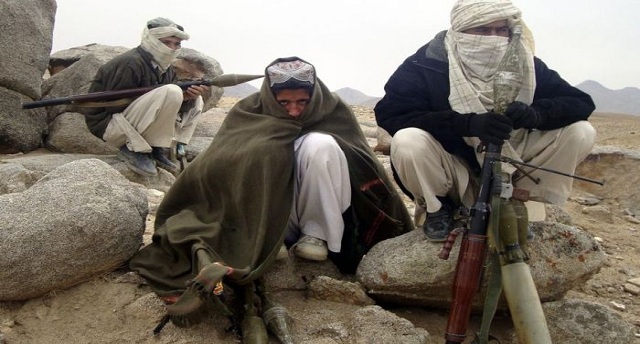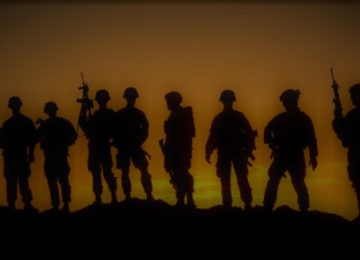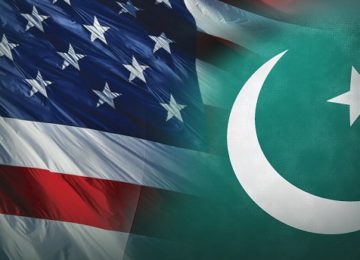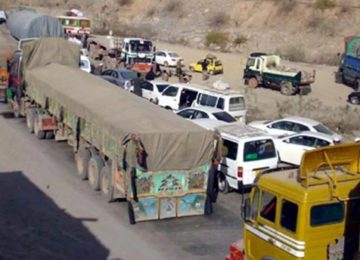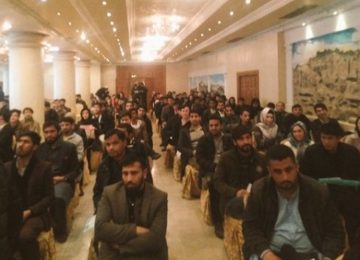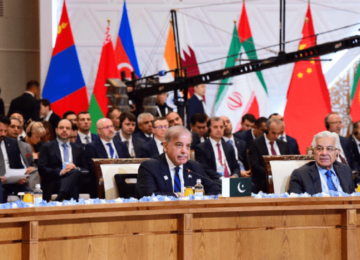The Taliban held their first direct contact with a U.S. official in a preliminary discussion about future peace talks on Afghanistan, a senior official with the insurgent group said Saturday. It marked one of the most significant developments amid efforts to find a negotiated end to the country’s protracted war.
The official described as “useful” a meeting with Alice Wells, the U.S.’s top diplomat for South Asia, earlier this week. He said the meeting was held in the small Middle Eastern country of Qatar, where the Taliban have maintained a political office since 2013.
“The environment was positive and the discussion was useful,” the Taliban official told The Associated Press on condition of anonymity because he was not authorized to speak to the media.
U.S. officials neither confirmed nor denied a meeting took place. However, Wells was in Doha, the Qatar capital, this week. In a statement following her return, the State Department said only that Wells had been in Doha, had met with the ruling family and “the United States is exploring all avenues to advance a peace process in close consultation with the Afghan government.”
Any talks about a future political setup would be between the Taliban and the Afghan government, the statement said.
The Taliban have long demanded direct talks with Washington, saying they do not want to talk politics with the U.S. but instead meet face to face to discuss Washington’s concerns __ particularly its security concerns __ about the Taliban and Taliban involvement in Afghanistan’s future. They also say they want a time frame for the withdrawal of the roughly 15,000 U.S. and NATO troops still in Afghanistan.
It wasn’t clear when the next meeting would be held or with whom, but the Taliban official who spoke to The AP was certain one would be held.
A former Taliban minister and ex-head of their political committee, Aga Jan Mohtism, who has maintained close contacts with the insurgent group, also confirmed a meeting in Doha between U.S. officials and the Taliban took place earlier this week.
“The Taliban want to solve their problems with the Americans to end the invasion,” he said.
The Taliban have argued that the Afghan government cannot act independent of Washington. They also say that unless they can allay U.S. concerns about the group, an agreement with Kabul would be meaningless.
During the Taliban’s five-year rule that ended with the 2001 U.S.-led invasion, leader Mullah Mohammed Omar said regardless of whatever concessions they agreed to, including allowing girls to attend school, it would not gain them international recognition as long as the U.S. refused to accept them.
The current leadership, most of whom are Mullah Omar’s contemporaries, still believe their future in Afghanistan can be guaranteed only if the United States’ concerns are addressed.
Until now, Afghan President Ashraf Ghani’s national security team has said it is ready to hold talks with the Taliban at any time and that their allies, including the United States, should participate only as observers.
In Kabul on Saturday, Shah Hussain Murtazawi, deputy spokesman for Ghani, repeated the government’s oft-stated position that peace talks should be “Afghan owned and Afghan led, any assistance the allies provide (would be in) a supportive role.”
Murtazawi did not comment directly on the meeting in Doha or say whether Ghani’s government was aware that the meeting had been held.
A previous attempt at direct talks between Washington and the Taliban in 2013 also in Doha, was scuttled when then-Afghan President Hamid Karzai objected to the Taliban calling its office the Islamic Emirate of Afghanistan __ the name of its government __ and flying the flag the movement flew when they ruled Afghanistan.
At the time the direct talks, which the Taliban also said would be restricted to U.S. concerns about the movement and troop withdrawal, was to be followed by talks between the Taliban and the Afghan government.
There was also a suggestion at the time that the talks would include the freedom of five Taliban held in the U.S. prison at Guantanamo Bay and the release of captured U.S. soldier Bowe Bergdahl. His release was eventually secured in May 2014 in exchange for the five Taliban prisoners, who are living in Doha.



